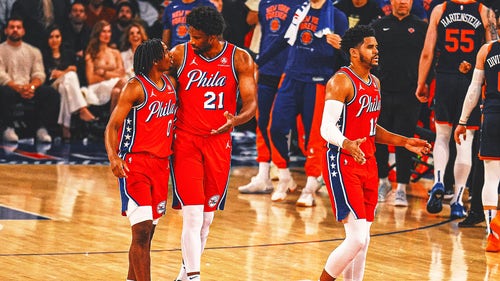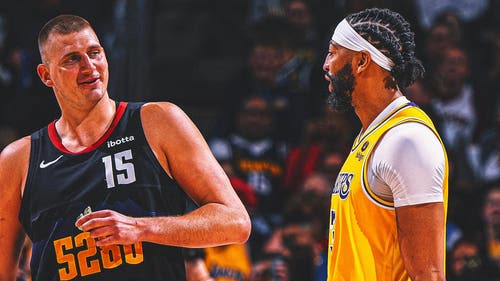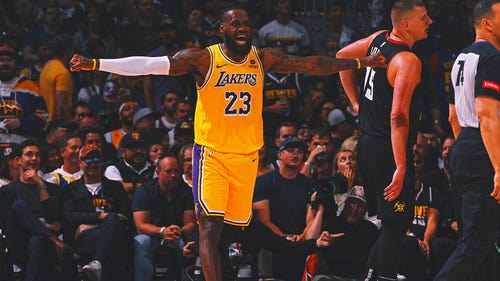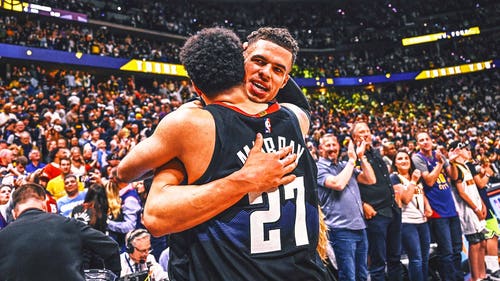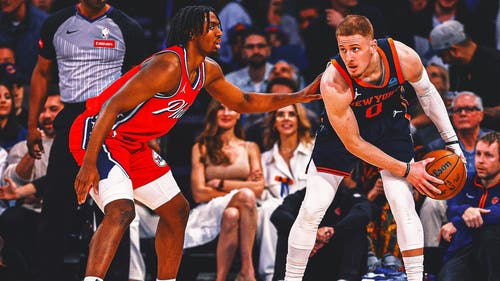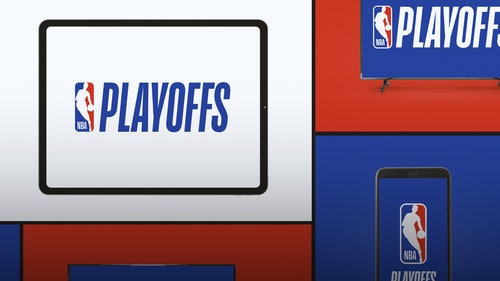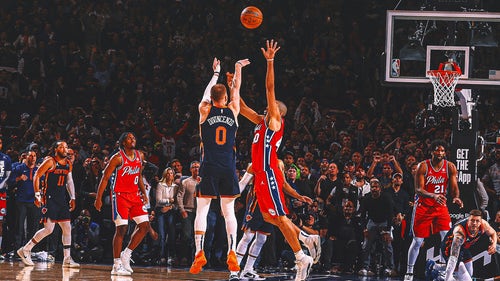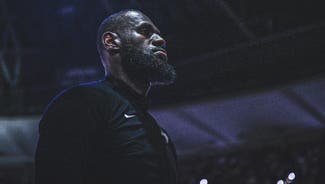
Just like Kareem, Bynum key to Lakers
It’s worth noting that Kareem Abdul-Jabbar’s most recent project – “On the Shoulders of Giants,” a documentary of the Harlem Renaissance – is about legacy, as his own is woefully ignored.
This is the year of the little man, or so you’ve been told on the eve of the NBA playoffs. Just about every playoff team - with the exception of the Lakers it seems — has a great-to-very good young point guard: Derrick Rose, Russell Westbrook, Rajon Rondo, Chris Paul, Darren Collison, Mike Conley, Jrue Holiday. Next season, add the names Kyrie Irving and Kemba Walker.
But the dearth of big men — by which I mean true centers — is a perennial condition in the NBA. Real centers, classically trained, have long been the league’s most rare and desired commodity. And you wonder: Are they not being born, or are they not being trained? Why, for example, has no one been able to replicate the most efficient shot (shot, not dunk) in the game, Abdul-Jabbar’s signature skyhook?
Part of it is the singular talent of its inventor, who began working on the move as a fifth-grader at St. Jude’s in New York. But there’s also been a failure to educate. “I don’t think anybody’s tried to teach it,” Abdul-Jabbar says. “Big-man skills are not really being taught to young players across the generations. They learn guard skills: dribbling, facing the basket. The emphasis is on the jump shot. The 3-pointer is very seductive.”
So are sweeping generalizations like those recently uttered by Shaquille O’Neal, who declared in Sports Illustrated: “The big man has gone. There will be no one ever in the history of the game to do what me and Tim Duncan did.”
Excuse me. What Shaq and Duncan did? Now he’s piggybacking on Duncan?
O’Neal was easily the most talented center to come along since Abdul-Jabbar. In fact, as mere physical gifts are concerned, he was probably more talented. But I read stuff like this and I think the all-time NBA leader in points and minutes (and right up there in games played, defensive rebounds and blocked shots too) should sit him down and have a little talk.
Shaq ,who is 39, has averaged 45 games a season over the past five years. This season, for the Celtics, he played in 37, averaging 9.2 points and 4.8 boards. At the time of Abdul-Jabbar’s 39th birthday, he had just concluded a regular season that saw him average 23.4 points over 79 regular season games. He still had two more championships in him, the fifth and sixth of his career.
As much as Pat Riley loved and depended on Magic Johnson, I’ll never forget him telling me, “It’s the big man. You need the big man.” In other words, the Lakers dynasty of the ’80s doesn’t happen without Abdul-Jabbar. Their rivals, the Celtics, don’t win without Robert Parish. Big men, true centers. It’s why Oklahoma City is a better team than Boston since trading for Kendrick Perkins. And it’s why the current Lakers team should win its third consecutive championship as long as Andrew Bynum stays healthy.
“When he’s playing well, he’s blocking shots, changing shots, and forcing the other team to rely on perimeter shooting,” says Abdul-Jabbar, who has spent parts of the past six seasons tutoring Bynum. “If you can force a team to rely on perimeter shooting, you have a great chance.”
In a league now dominated by a new breed of star point guards, the Lakers somehow manage to get by with Derek Fisher, in his 15th season. Sure, on offense, Fisher’s job is simplified by the fact that the ball belongs to Kobe Bryant. But on defense — his real liability against quicker, younger players — Fisher knows there’s a 7-foot, 285-pound answer awaiting his mistakes. It’s not just Fisher, either. It’s Bryant and Lamar Odom and Pau Gasol.
“Everybody who gets beat, Andrew makes their lives easier,” Abdul-Jabbar says. “He has that ability to cut off the layup and force another pass. . . . That’s the thing that’s made Andrew become a more effective player — recognizing what needs to be done on defense.”
At 23, Bynum is already in his sixth season in the NBA. But he was drafted after only two incomplete seasons of high school ball. “It’s pretty amazing, really,” Abdul-Jabbar says. “He had to learn everything, the entire pro game at both ends of the court. A lot of young guys get drafted and figure: ‘I made it. I don’t have to do anything.’ Andrew realized he had things to learn, and that I could help him.”
You pretty much know what you’re going to get out of Bryant, Gasol and Odom over the course of the playoffs. So Los Angeles goes as Bynum goes. He spent the first part of the season recovering from knee surgery (what else is new?), but as he asserted himself the Lakers again became the best team in the league. They went on a 17-1 tear after the All-Star break, at which time Bynum was averaging 7.4 rebounds and 1.7 blocks. According to STATS LLC, those 18 games saw him average 2.5 blocks, 12 rebounds and 12 points while shooting 63 percent from the field.
Those are the kind of numbers upon which legacies are built.
Bynum could end up with more rings than Shaquille. If only Kareem could mentor his knees.







































































































































